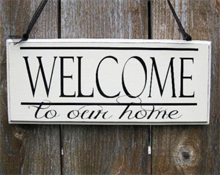
I have recently purchased my first house and something I have had to consider is making a Will. Research has shown that most people fail to make appropriate arrangements for their death which impacts upon those closest to them. A study by the Dying Matters Coalition showed that over half of us are unaware of our partner’s final wishes and we are unlikely to have made suitable arrangements for our own deaths. I had avoided making a Will as I didn’t want to think about death but especially since becoming a home owner I realised it was a sensible step to take to ensure my loved ones are looked after.
I would urge home owners to make a Will or review their Wills to ensure they are up to date. It is especially important when buying a house with someone else to consider what you would wish to happen to your interest in your home upon your death. This is something that needs to be considered with your conveyancer when purchasing your home and to be confirmed in your Will. It is essential that you receive professional advice from an expert to ensure you are aware of all your options and that your Will reflects your wishes.
At Burd Ward we regularly advise and act for clients in this area. Buying a home can be a daunting time and it is important that you have advice from professionals who can guide you through the process and ensure that you have provision in place to ensure your wishes are met in the event of your death. We appreciate that making a Will may be the last thing on your mind amongst the stress of moving home but it is the perfect time to take stock and consider what you would want to happen to your home if you died and at Burd Ward our wills are competitively priced and you can be assured of a speedy service from our qualified advisers.
For more information please contact Laura Prysor-Jones on 0151 639 8273 or email her at lpj@burdward.co.uk
Whether children/young adults play Football or Rugby they could be in danger of sustaining at the very least a concussion and/or “minor head injury”. Most recently Tottenham keeper Hugo Llioris briefly lost consciousness during Tottenham’s game against Everton when he collided with Romelu Lukaku. He was assessed on the pitch and allowed to carry on. But Football unions called for changes to the Head Injury Guidelines with the Professional Football Association saying that footballers should be removed from play is they lose consciousness.
So what happens at schools or local football matches that children/young adults play in, what are the guidelines there and is there someone suitably qualified to spot the signs of concussion and/or a minor head injury.
We certainly do not want to stop our children/young adults from playing such sports but we have to be confident that the continued participation in such sports is not causing lasting damage to those who play.
Many Rugby players will suffer will suffer repeated concussions during their career. But similarly footballers who header a fast moving ball can find that the impact is severe given the force by which the ball is travelling.
Such is the issue that The Washington Post reported on 30 May 2014 that the First ever summit was to be held on Sports Concussions was to be held in the White House with President Obama stating that the Culture of American Sports needed to shift to cope with danger of concussions suffered in sports.
The summit resulted in new financial commitments by the federal government and the private sector into research into concussions to help train paediatric neurologists specialising in sports concussions and research into how to prevent diagnose and treat the injuries amongst young athletes.
So what should we do and what should we look out for?
Well top scientists suggest that for someone with suspected concussion, you take them off and watch them that night. But what if you are not present at the game? Being observant and talking to player afterwards is key. Ask them if they came into contact with anyone else or headed the ball. Look out for signs of concussion/head injury such as:
Further information can be found on the NHS website at: http://www.nhs.uk/conditions/head-injury-minor/pages/introduction.aspx
Contact Alisha Butler-Ward at alishaward@burdward.co.uk